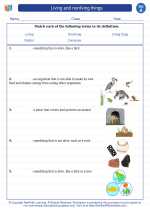Experiments
Experiments are a key part of the scientific method and are used to test hypotheses and discover new information about the world around us. They involve carefully designed procedures that allow scientists to make observations and collect data in order to answer specific questions.
Types of Experiments
There are several different types of experiments, including:
- Laboratory Experiments: These are conducted in a controlled environment, such as a laboratory, where variables can be carefully manipulated and controlled.
- Field Experiments: These take place in the natural environment, where researchers observe and manipulate variables in real-world settings.
- Controlled Experiments: These involve the manipulation of one or more variables to observe the effect on other variables, with a control group used for comparison.
- Quasi-Experiments: These are similar to controlled experiments but lack random assignment of participants to different conditions.
Steps of an Experiment
The typical steps of conducting an experiment include:
- Formulate a Question: Identify the question or problem that you want to investigate.
- Research and Hypothesize: Conduct background research and form a hypothesis, which is a testable prediction about the outcome of the experiment.
- Design the Experiment: Plan and design the procedures for the experiment, including how variables will be manipulated and measured.
- Carry Out the Experiment: Conduct the experiment according to the established procedures, making careful observations and collecting data.
- Analyze the Data: Organize and analyze the data collected to look for patterns and relationships.
- Draw Conclusions: Based on the data analysis, draw conclusions about whether the hypothesis was supported or refuted.
- Communicate Results: Report the findings of the experiment through a written report, presentation, or other means of communication.
Importance of Experiments
Experiments are important because they provide a systematic way to test hypotheses and explore cause-and-effect relationships. They allow scientists to gather empirical evidence to support or challenge their ideas, leading to a deeper understanding of natural phenomena and the development of new technologies and treatments.
Study Guide for Experiments
When studying experiments, it's important to understand the following key concepts:
- The scientific method and its application in designing and conducting experiments.
- The difference between independent and dependent variables, as well as the role of control groups.
- The ethical considerations involved in conducting experiments, such as informed consent and minimizing harm to participants.
- The ways in which data can be collected, analyzed, and presented to draw valid conclusions.
- The impact of experiments on scientific knowledge and their real-world applications.
[Experiments] Related Worksheets and Study Guides:
.◂Science Worksheets and Study Guides First Grade. Living and nonliving things
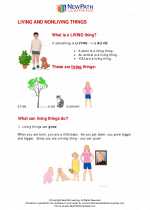
 Activity Lesson
Activity Lesson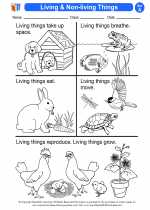
 Worksheet/Answer key
Worksheet/Answer key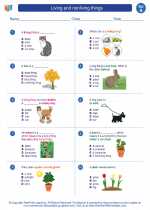
 Worksheet/Answer key
Worksheet/Answer key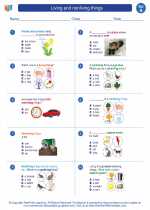
 Worksheet/Answer key
Worksheet/Answer key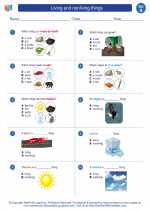
 Worksheet/Answer key
Worksheet/Answer key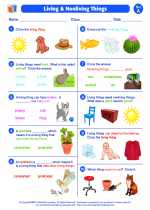
 Vocabulary/Answer key
Vocabulary/Answer key